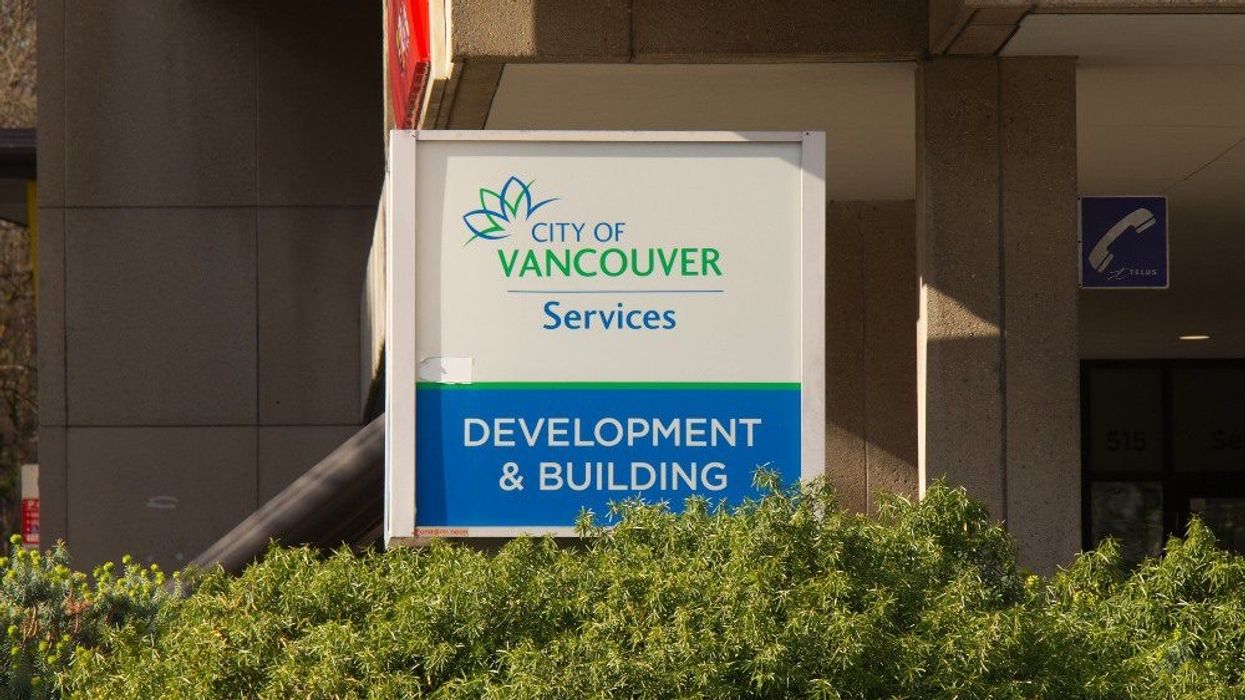On Tuesday, the City of Vancouver announced that it will be launching a new digital Project Requirements Exploration Tool (PRET) as part of its ongoing effort to streamline the City's permitting processes.
The Project Requirements Exploration Tool will allow applicants to "explore and understand regulations and requirements for locations throughout Vancouver," which will help applicants "identify potential costs, map out timelines, and determine project feasibility."
While PRET appears to be designed for use in the early stages of development, the City simultaneously announced a second tool called eComply that appears to be designed for use in latter development stages.
According to the City, eComply will allow applicants to "upload their designs and drawings, check if they meet City of Vancouver regulations, and receive a compliance report."
Currently, City staff manually review applications and check them against existing policies and regulations -- a process that can involve a decent amount of back-and-forth between staff and developers. Staff are also often overwhelmed by the volume of applications, and there is also a significant amount of staff turnover, according to Director of Planning Theresa O'Donnell.
"These two new digital tools will reduce staff manual review time and provide residents and businesses with confidence that their application is compliant and complete," the City says.
Both PRET and eComply were developed by Australia-based software company Archistar, and the City says it is the first municipality in North America to partner with the firm to improve permitting processes.
The first iteration of PRET is scheduled to launch later this summer, while the "initial component" of eComply is scheduled to launch in early-2024.
"Our partnership with the City of Vancouver will help Vancouver residents and businesses to assess land potential at the click of a button," said Archistar CEO Ben Coorey. "Anyone will be [able] to instantly pre-check their plans for compliance, ultimately making the approval process faster, easier, and cheaper."
"Embracing technology for permitting will have a huge impact for Vancouver's residents and businesses," added Mayor Ken Sim. "Applicants will receive feedback on any items that are incomplete, missing or not permitted so they can resolve it before they submit their application."
Additionally, the City is currently in the process of amending certain existing policies in order to simplify the application process further.
Those include aligning regulations for all of the various low-density residential (RS) zones by removing 17 design and administrative requirements, changing the current process of engineering reviews, allowing for rainwater management requirements to become part of the plumbing permit process rather than the development permit process, and more.
According to General Manager of Development, Buildings, and Licensing Andrea Law, over 70% of the processing time for these low-density residential projects is spent with the application in the hands of the applicants, working towards the City's requirements.
"To help applicants, we continue to simplify policies and guidelines so the application process is less complex," Law said.
READ: Anthem CEO Eric Carlson On The $10M CAC Deferral, State Of Housing Development
Earlier this year, a report by the Canadian Home Builder's Association found that approval timelines for development applications in the City of Vancouver, from application to planning, take approximately 15.2 months and have actually gotten worse in the past few years.
That estimate also does not take into consideration the time it takes before the application is submitted, which is itself significant. Thankfully, the new PRET and eComply tools appear to be addressing these issues.





















